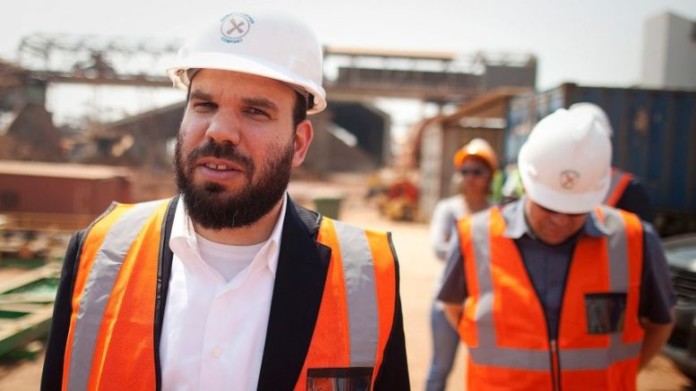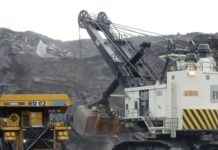
GLENCORE’S workaround the US sanctions placed on Dan Gertler, the Congo’s mining tycoon, was a remarkable piece of pragmatism on behalf of the Swiss miner and minerals trader, but it may have also been informed by a broader concern.
The concern is that in failing to settle the matter, the assets from which Gertler was demanding the resumption of royalties – the Mutanda and Kamoto Copper mines – would have been expropriated by the Congolese government with whom Gertler is close.
It’s quite likely then, given China’s obvious comfort in operating in the Congo, that its companies may have bought the mines and taken control of a large slug of world cobalt (and copper) supply that is crucial to battery manufacture. Controlling the cobalt market would give the Chinese unprecedented control over the world automotive sector.
Glencore has said the ‘circumvention’ of US sanctions was a matter discussed with both Swiss and US authorities. What isn’t known is whether Glencore made the broader market risks of losing the assets plain to the authorities. As a mining company CEO acknowledged: “I can imagine the US authorities being very partial to that argument”.
Said Exane BNP Paribas in a recent note: “It seems to us that this situation raises the stakes beyond the fate of DRC and its political situation.
“If the West is not careful, the most critical part of supply of a material as strategic as cobalt for elecric vehicles (EVs), electronics (consumer and other) and defence applications (superalloys, electronics) could end up in the hands of a single country, rather than under the ownership of the private sector.
“At a time the battery industry is already on the cusp of becoming almost entirely Chinese, this is a situation that the West should consider very seriously. This is reminiscent of the rare earths episode.
“This could also mean that the future of EVs and to some extent iPhones and other electronics (25% of batteries demand currently) that are critical to the West could quickly hinge entirely on the Chinese. We doubt that the US had envisaged such consequences when they made Mr Gertler an Special Designated National (SDN).
BACKGROUND
Glencore said last week it would resume royalty payments to Gertler who had earlier attempted to impose a freeze order on the Mutanda and Kamoto Copper assets. This was achieved after consultation with US and Swiss authorities.
The group had stopped paying the royalties after Gertler was declared an SDN by the US government in December. In terms of such an imposition, companies and individuals are prohibited from providing financial assistance. Gertler has been accused of corrupt practices in the Congo where he enjoys a long-standing friendship with Joseph Kabila, the country’s president.
After securing rights over the royalties in 2015, Gécamines had instructed Glencore’s Mutanda and Kamoto Copper Company to make royalty payments which consist of a so-called “pas de porte” of $140m – effectively granting Glencore access to the concession area, and a further 2.5% of net revenues, for the use of Gécamines’ equipment and facilities and the depletion of the deposits. The freezing orders launched by Gertler amounted to a calculation on lost future royalties from the
Glencore’s agreement is effectively a legal work-around in which Glencore pays the royalties in Euros.
According to Bernstein, the New York investment bank, this would amount to $230m for 2019. “The somewhat shocking headlines regarding demands for several billions of upfront dollars fall away, and we return to ‘normality’. Instead of ‘Glencore is going to have to pay $3bn+ to Dan Gertler’, this simply becomes: ‘Glencore continues to pay its previously agreed royalties’,” said Bernstein in a note.










